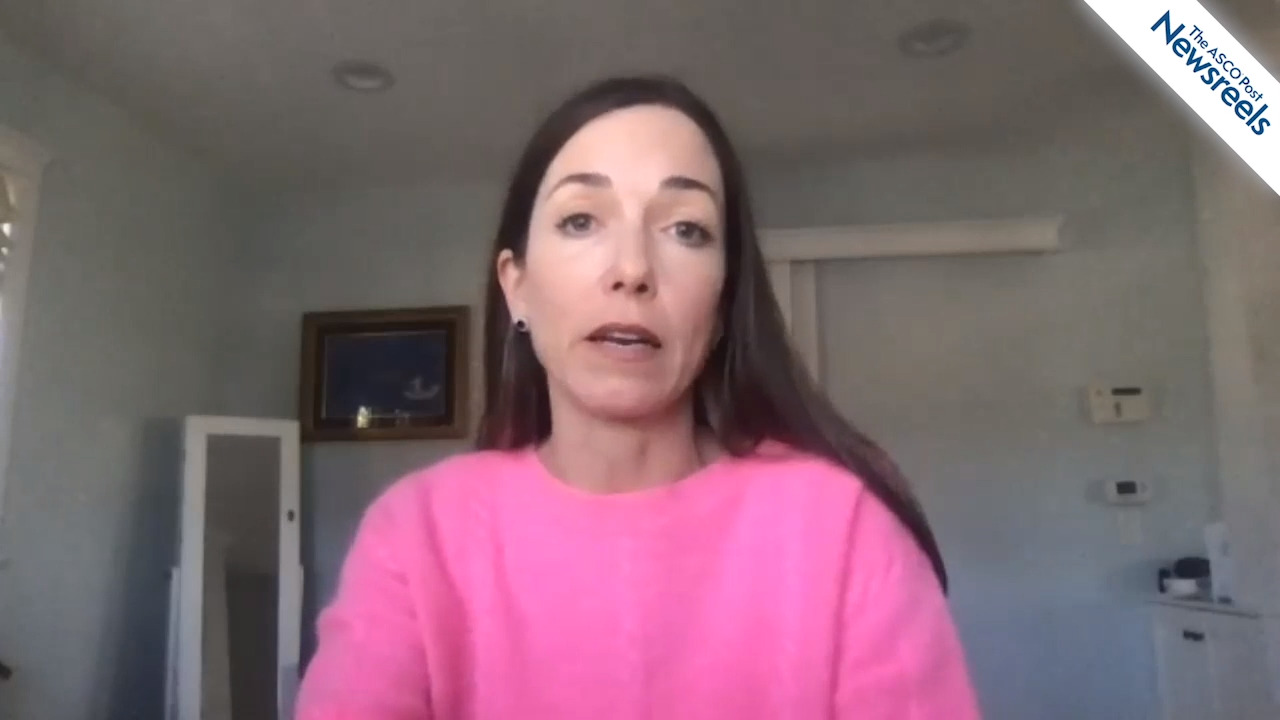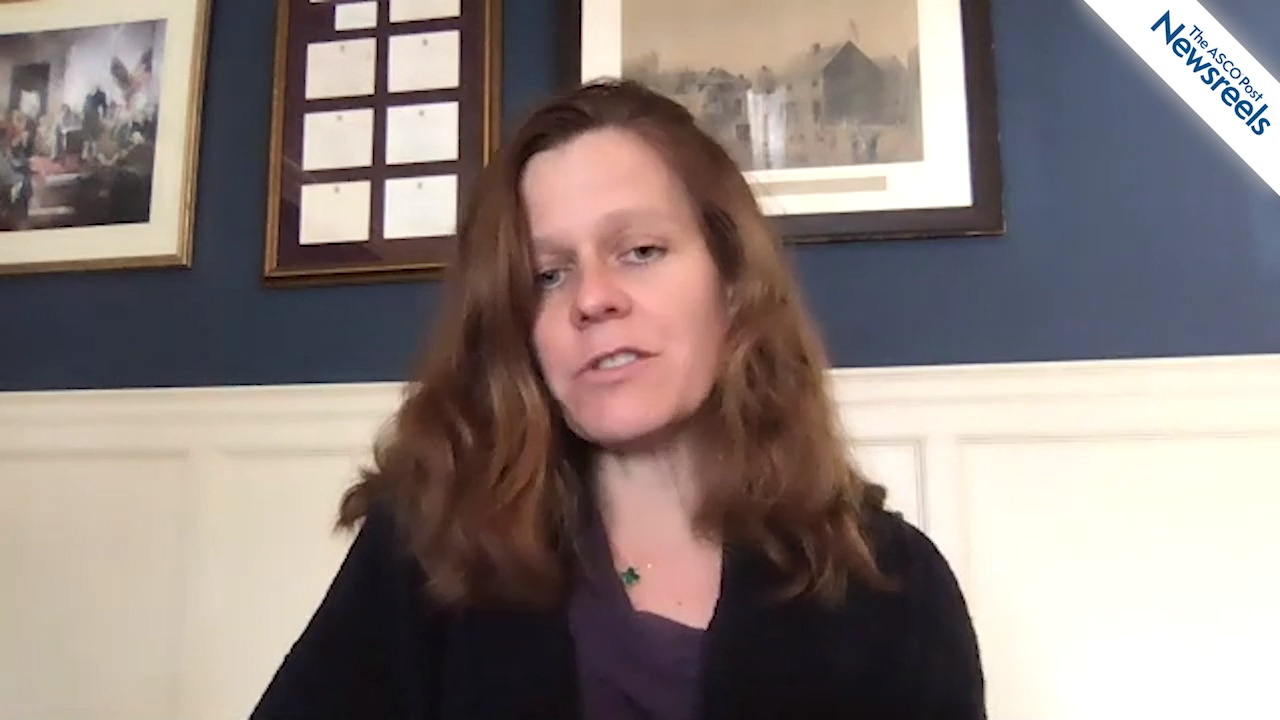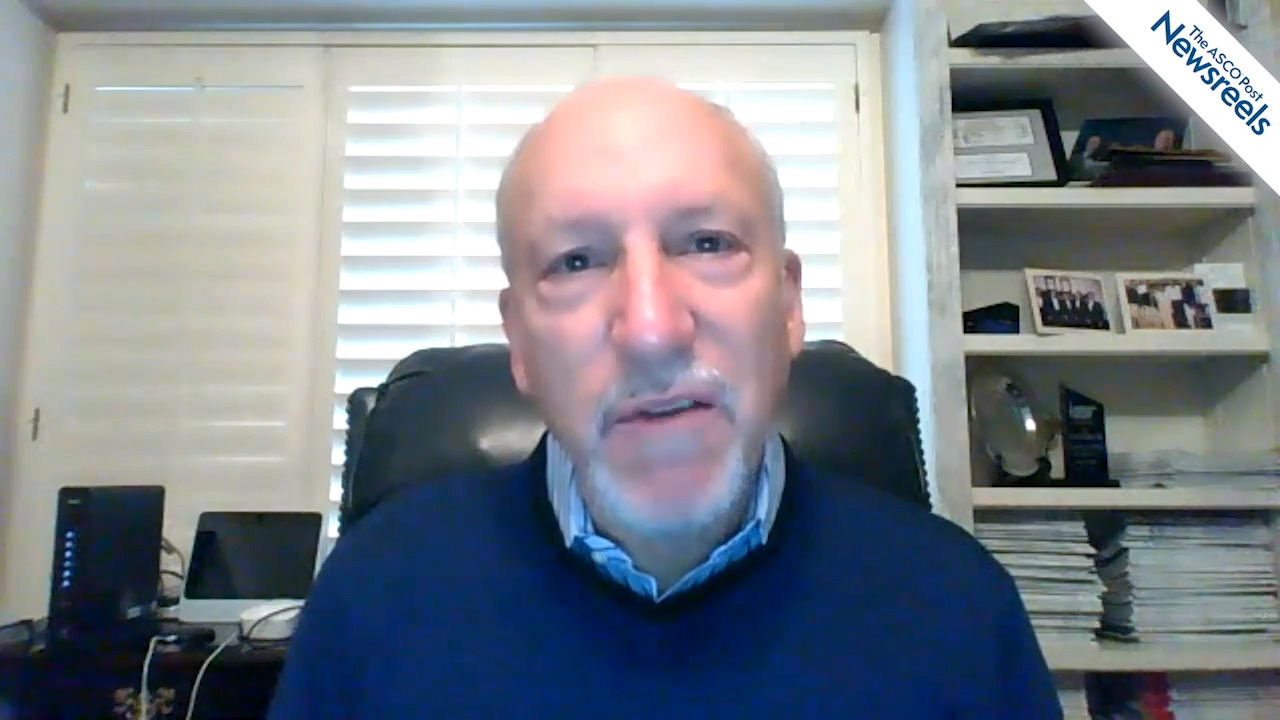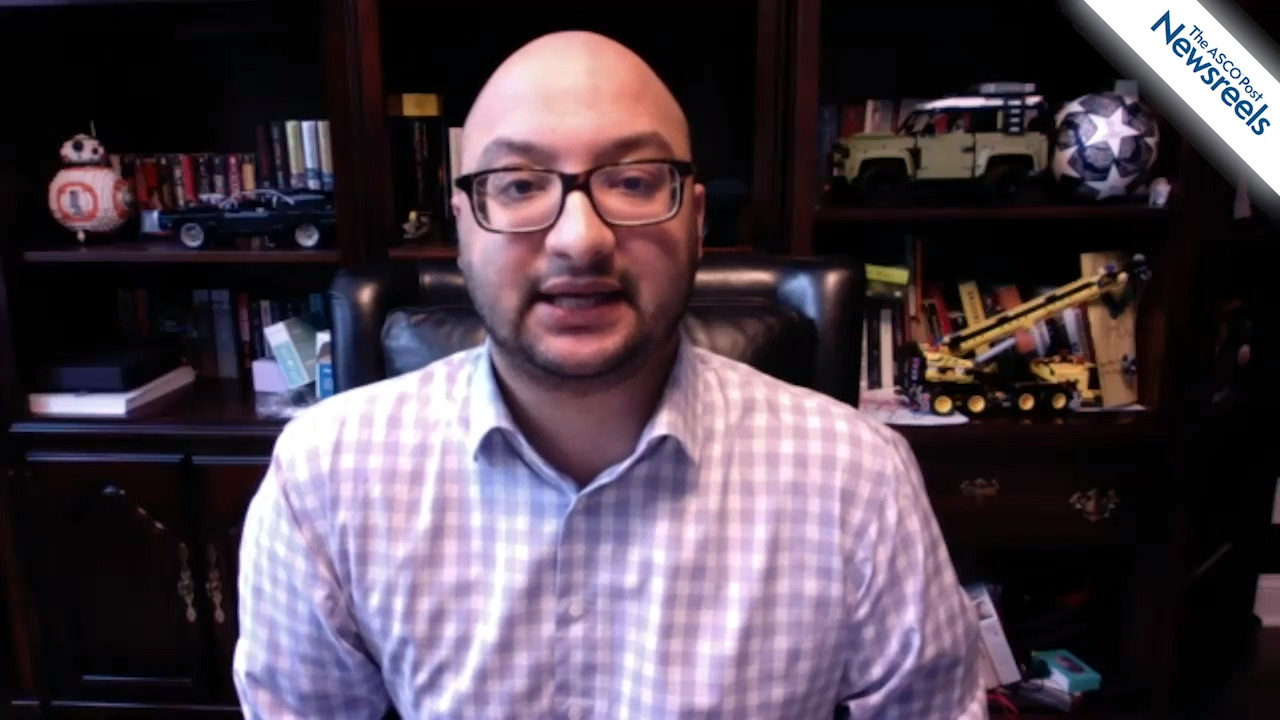Debra A. Pratt, MD, on Time to Completion of Breast Cancer Treatment and Survival
2020 San Antonio Breast Cancer Symposium
In her recent study, Debra A. Pratt, MD, of the Cleveland Clinic, showed that when breast cancer treatment using any of three modalities takes longer than 38 weeks, it is associated with a decrease in survival, regardless of the receptor status. Patients with breast cancer who received neoadjuvant chemotherapy were more likely to take longer than 38 weeks to complete treatment than those undergoing surgery first (Abstract S11-34 ).
The ASCO Post Staff
Sara A. Hurvitz, MD, of the David Geffen School of Medicine at UCLA, discusses phase III data from the ASCENT study of the antibody-drug conjugate sacituzumab govitecan vs chemotherapy in patients with previously treated metastatic triple-negative breast cancer (Abstract GS3-06).
The ASCO Post Staff
Ann H. Partridge, MD, MPH, of Dana-Farber Cancer Institute, discusses results from the ALTERNATE trial on response to neoadjuvant chemotherapy in postmenopausal women with clinical stage II or III estrogen receptor–positive and HER2-negative breast cancer that is resistant to endocrine therapy. The findings highlight the need for more effective treatments in this high-risk population (Abstract GS4-05).
The ASCO Post Staff
Joyce V. Lee, PhD, of the University of California, San Francisco, discusses data that suggest the MYC oncogene may indicate whether a patient with triple-negative breast cancer will respond to immunotherapy. Dr. Lee’s study is the first to describe MYC downregulation of MHC-I and to demonstrate translatable approaches that may overcome immune evasion (Abstract GS1-08).
The ASCO Post Staff
Lee S. Schwartzberg, MD, of the West Cancer Center, discusses phase III results from the CONTESSA study, which showed that an all-oral regimen of tesetaxel plus a reduced dose of capecitabine significantly improved progression-free survival compared with capecitabine alone in patients with HER2-negative, hormone receptor–positive metastatic breast cancer previously treated with a taxane (Abstract GS4-01).
Editor's note: On March 22, 2021, Odonate Therapeutics announced it was discontinuing the development of tesetaxel and will close the company's operations. Read more here.
The ASCO Post Staff
Chirag Shah, MD, of the Cleveland Clinic, discusses the impact of DCISionRT testing on radiation therapy recommendations for patients with ductal carcinoma in situ following lumpectomy. His study found that despite using traditional favorable-risk criteria, radiation recommendations were changed in more than 40% of patients (Abstract PS6-17).





